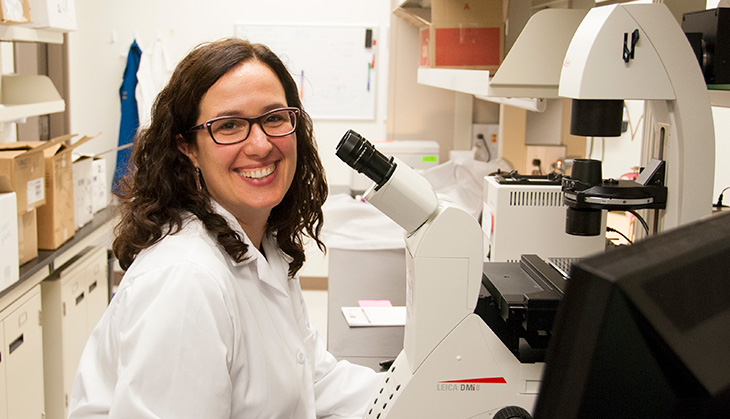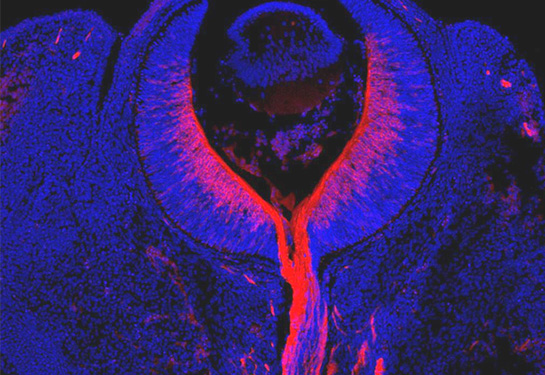2024 Cultivating Team Science grants will fund research on yeast infections and eye diseases
This week, the School of Medicine announced the winners of its 2024 Cultivating Team Science seed grant program. The competitive grants fund medical school science projects that involve multiple departments.
The principal investigators of these projects are School of Medicine faculty members. They lead teams with researchers from at least two departments. The winners for this year are:

- Distinguished professor Andreas Bäumler and assistant professor Derek J. Bays
Title: “Preventing invasive candidiasis by restoring gut epithelial hypoxia.”
The study aims to show how a host resists infection with the fungal pathogen Candida. The researchers hope to develop ways to restore immune function during antibiotic therapy. Invasive candidiasis is a rare but serious outcome of this common yeast infection.
Team members are from the Department of Medical Microbiology and Immunology, Internal Medicine Division of Infectious Diseases, and the School of Veterinary Medicine Departments of Anatomy, Physiology and Cell Biology, Pathology, Microbiology and Immunology, and Population Health and Reproduction.

- Professor Anna La Torre
Title: “ON-SIGHT (Optic Nerve Special Interest Group for Human Therapeutics): Developing novel models of retinal ganglion cell degeneration.”
Retinal ganglion cells (RGCs) pass all visual stimuli from the retina to the brain. Their axons form the optic nerves. Diseases affecting RGCs can lead to visual impairment or blindness. Researchers will characterize novel models of RGC degeneration in mice and nonhuman primates to advance RGC replacement therapies.
Team members are from Cell Biology and Human Anatomy, Ophthalmology and the School of Veterinary Medicine Surgical and Radiological Sciences.
The Cultivating Team Science award will provide each team $100,000 annually for two years. These funds are for planning, preparation and submission of large team-based grant applications.
Diana Farmer, the chair of the Department of Surgery, and Brad Pollock, the chair of the Department of Public Health Sciences oversaw this year’s award review process. Nineteen faculty members reviewed the proposals. They assessed significance and impact, the makeup and synergy of each team and the potential for federal funding.
“In the fourth year of the Cultivating Team Science scheme, we are excited to support these new projects, which came from a large and competitive pool of applications,” said Kim Barrett, vice dean for research. “The funds should allow the teams to generate preliminary data as well as the evidence of meaningful interactions that are needed to apply successfully for large NIH awards, such as Program Project and Center grants.”






